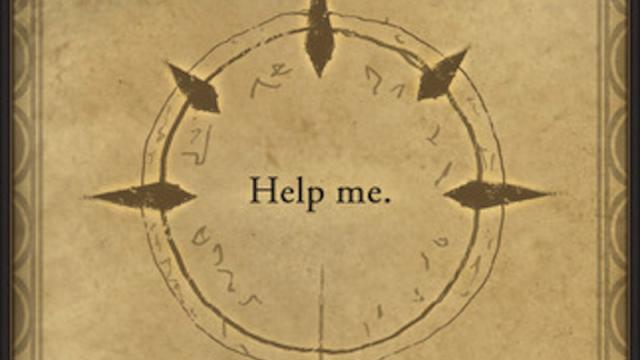Lifeline is supposed to be the best game for the Apple Watch. Like you, I suspect, I don’t own an Apple Watch. I do own an iPhone, though, and Lifeline is a pretty nifty iOS game. So why is Lifeline 2, which was released last week, such a disappointment?
The first game reinvented the text adventure for mobile devices by using the notifications on your phone or watch to create a vivid sense that Taylor, the astronaut you communicate with, really is marooned in outer space as he intermittently messages you throughout the day. Taylor’s story becomes an ambient part of your life, an entertaining interruption that lives alongside your Twitter notifications and email alerts. Lifeline worked so well that it seemed to herald a new genre of portable text adventures, even for the impoverished, Watchless masses.
Playing Lifeline 2, alas, has been a bit of a chore. For one thing, I just don’t like Arika, the mage at the center of the new story. She is a teenage girl, but her jokes, puns, and pop-culture references — to Dune, or The Doors, or mix tapes, or Bob Ross — make her seem like a male Gen-X comic book writer. (Both games are written by Dave Justus.)
Maybe it’s fairer to say that I don’t believe her. Lifeline required a relatively large suspension of disbelief: Why is Taylor talking to me, on my phone, of all the people on Earth? Why does he do whatever I tell him to do? It seemed remotely — barely — plausible that Taylor, alone on a hunk of space rock, would be desperate enough for your help that he would go along with your wishes. Or maybe you could convince yourself that you were a radio operator at NASA or something.
Arika, however, repeatedly reminds you that you’re a stranger who doesn’t know anything. In doing so, Lifeline 2 creates a chasm so wide that it can’t make the jump across. Arika has opened a magical, permanent channel of communication with you, a hopeless Muggle who does not know the first thing about her life or her world. Despite your total ignorance, she will dutifully turn left at your behest, or obey your orders for how to go about stealing a magical item that is central to her quest to avenge her parents and rescue her brother.
Part of the success of Lifeline, like the success of Her Story, was that its fiction dovetailed with the novelty of the interactions in the game. Lifeline, like Her Story, suffers a little when you think too deeply about what’s going on between the player and the characters. The conceit that you’re talking to a stranded astronaut (or watching a series of police interrogations in Her Story) makes it possible, maybe, to swallow it.
I’ve been playing for about a week, although my progress stalled for a bit because of a bug that was a fixed in a recent update. I’m interested in Arika’s magical world and the characters she visits, even though I don’t like Arika. I’m willing to plow through the rest of the game to find out what happens to her. I don’t buy, though, that she would be listening to my advice about how to solve her problems. Lifeline 2 takes a promising model for a new kind of video game and tries to impose it on a story that doesn’t fit the genre.
Chris Suellentrop is the critic at large for Kotaku and a host of the podcast Shall We Play a Game? Contact him by writing chris@chrissuellentrop.com or find him on Twitter at@suellentrop.

Comments